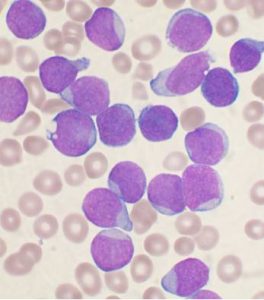
Merck in $100 million contraceptive settlement
pharmafile | February 10, 2014 | News story | Sales and Marketing | Merck, birth, birth control, legal, nuvaring
Merck has offered to pay $100 million to resolve thousands of legal claims brought against it for selling a birth control product despite alleged health risks.
Around 3,800 patients claim the firm was aware of a heightened risk of blood clot formation posed by its NuvaRing contraceptive device – but that it failed to flag this danger appropriately.
Merck maintains that its product is safe, and does not accept responsibility for any wrongdoing in the terms of its proposed settlement.
Whether or not the financial compromise goes ahead depends on its acceptance by 95% of claimants. However, the initial outlook looks positive, with one lawyer quoted by Reuters describing the offer as “an outstanding result and in the best interests of all the women who have suffered an injury associated with the use of NuvaRing.”
If the settlement does go ahead, the New Jersey-based firm will escape paying as much compensation as competitors have in the past over risky birth control products, Bloomberg reports.
Last year, German company Bayer said that it had so far forked out $1.6 billion as a result of lawsuits relating to its Yasmin and Yaz contraceptive pills. In these cases, plaintiffs similarly claimed that the products heightened the risk of forming dangerous blood clots.
NuvaRing works by slowly releasing oestrogen and progestin into the body and was first approved for use in the US and EU in 2001.
A meta-analysis published in BMJ in 2012 found that women using Merck’s product had a 90% higher chance of developing blood clots – which can lead to strokes or heart attacks – than those who used an oral contraceptive.
Despite these health concerns, the product enjoyed sales of $686 million in 2013 – a 10% increase on the previous 12 months. It is therefore unclear if news of this potential settlement will have any negative impact on sales.
Merck enters cancer collaborations with Amgen, Incyte and Pfizer
In other Merck news, the firm has signed separate agreements with Amgen, Incyte and Pfizer to help study the effectiveness of its investigative cancer immunotherapy MK-3475 with other treatments.
MK-3475 works by blocking the PD-1 protein, enabling the body’s immune system to target and combat cancer cells – and also opening up the possibility of effective combination treatments.
Amgen and Merck will study the impact of the former’s talimogene laherparepvec and MK-3475 on untreated late-stage melanoma.
Incyte will lend its experimental compound INCB24360 to a study investigating its combined effect with MK-3475, on non-small cell lung cancer that has spread to other parts of the body.
Finally, Merck and Pfizer will run Phase I and II trials evaluating MK-3475 in combination with Inlyta (axitinib) among patients with kidney cancer, in addition to a number of other studies.
Merck Research Laboratories president Roger Perlmutter said: “These new collaborations with Amgen, Incyte and Pfizer underscore our shared determination to evaluate treatment regimens with the potential to provide meaningful benefits to patients suffering from cancer.”
Other firms developing treatments similar to MK-3475 include Bristol-Myers Squibb (nivolumab) and Roche (MPDL3280A).
Hugh McCafferty
Related Content

Merck to acquire Curon Biopharmaceutical’s B-Cell Depletion Therapy
Merck have announced that they have entered into an agreement with private biotechnology company Curon …

Merck and Daiichi Sankyo expand development and commericalisation agreement to include MK-6070
Daiichi Sankyo and Merck (known as MSD outside of the US and Canada) have announced …

CHMP gives positive opinion for Merck’s KEYTRUDA for unresectable or metastatic urothelial carcinoma
Merck (known as MSD outside of the US and Canada) has announced that its anti-PD-1 …






